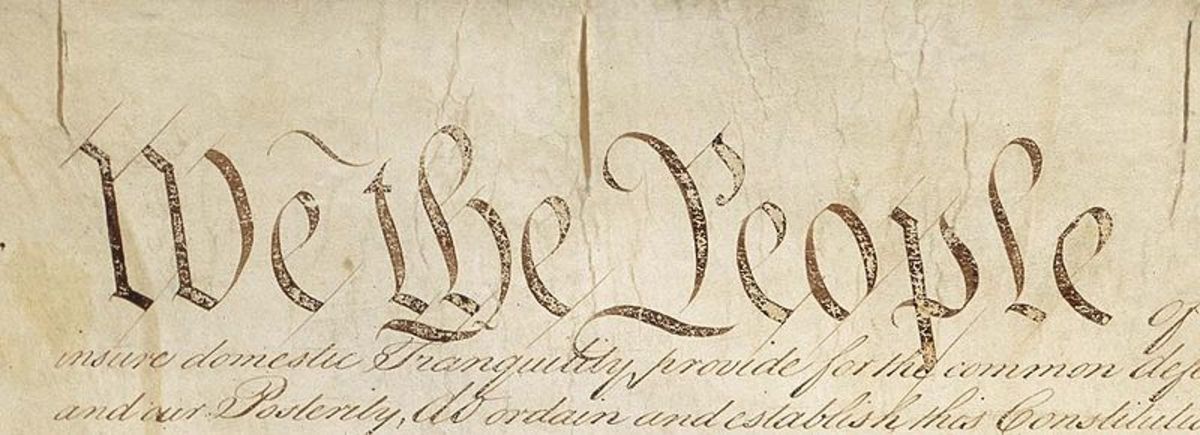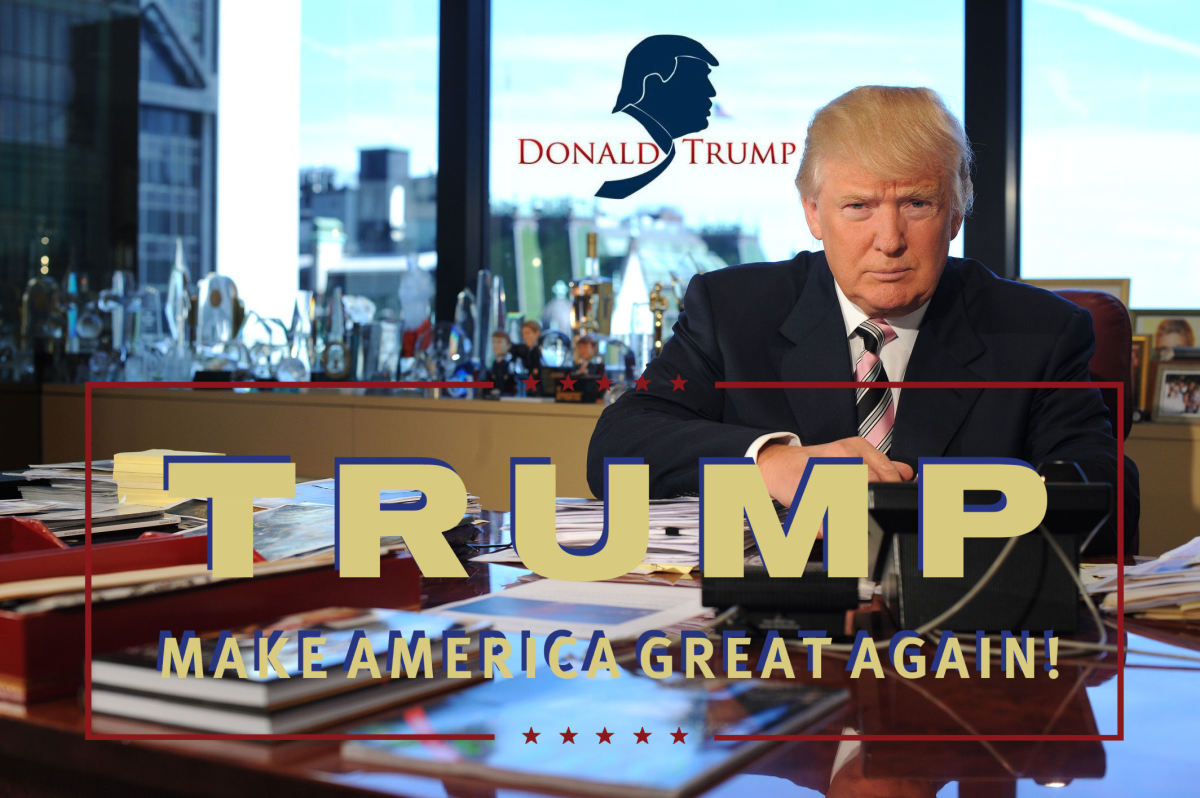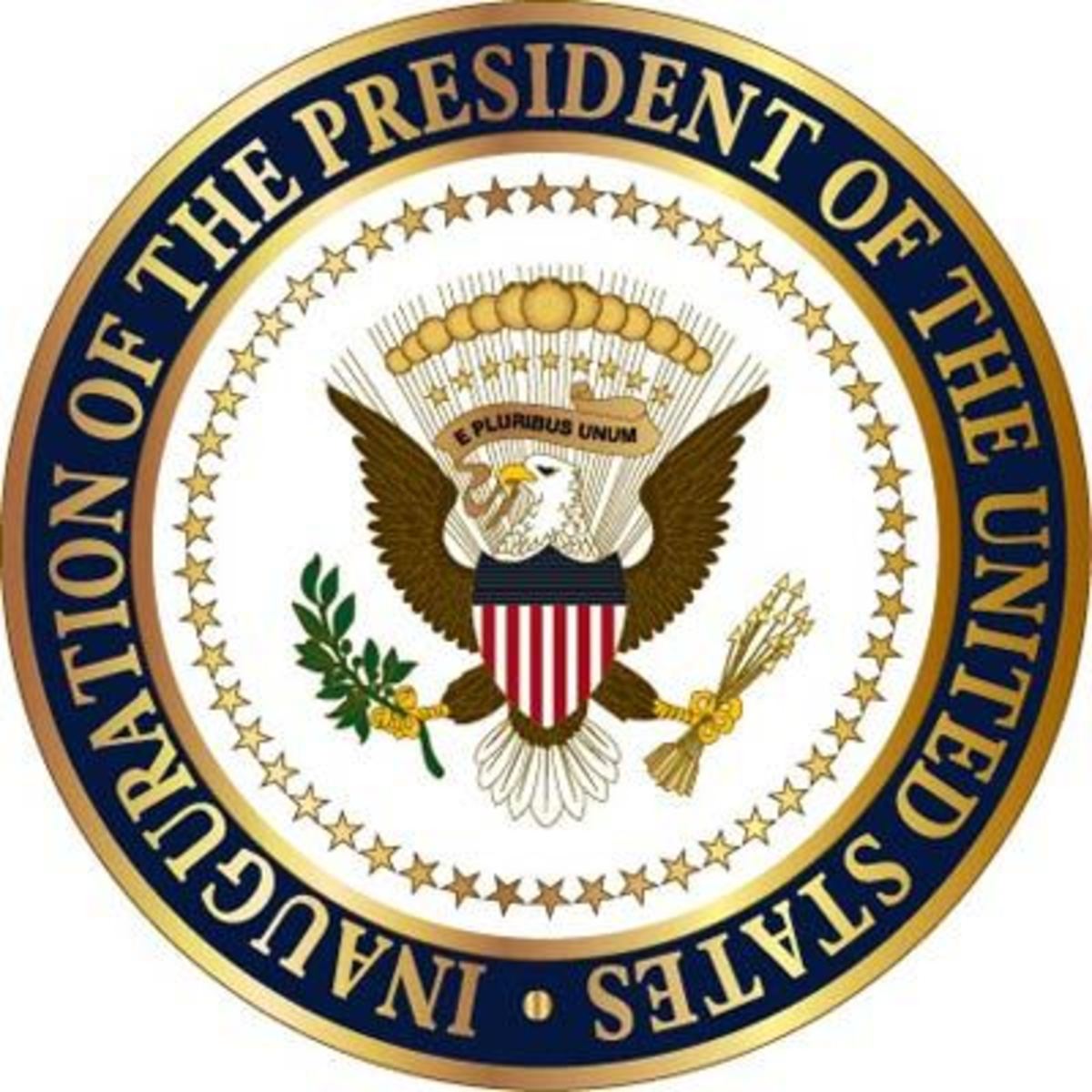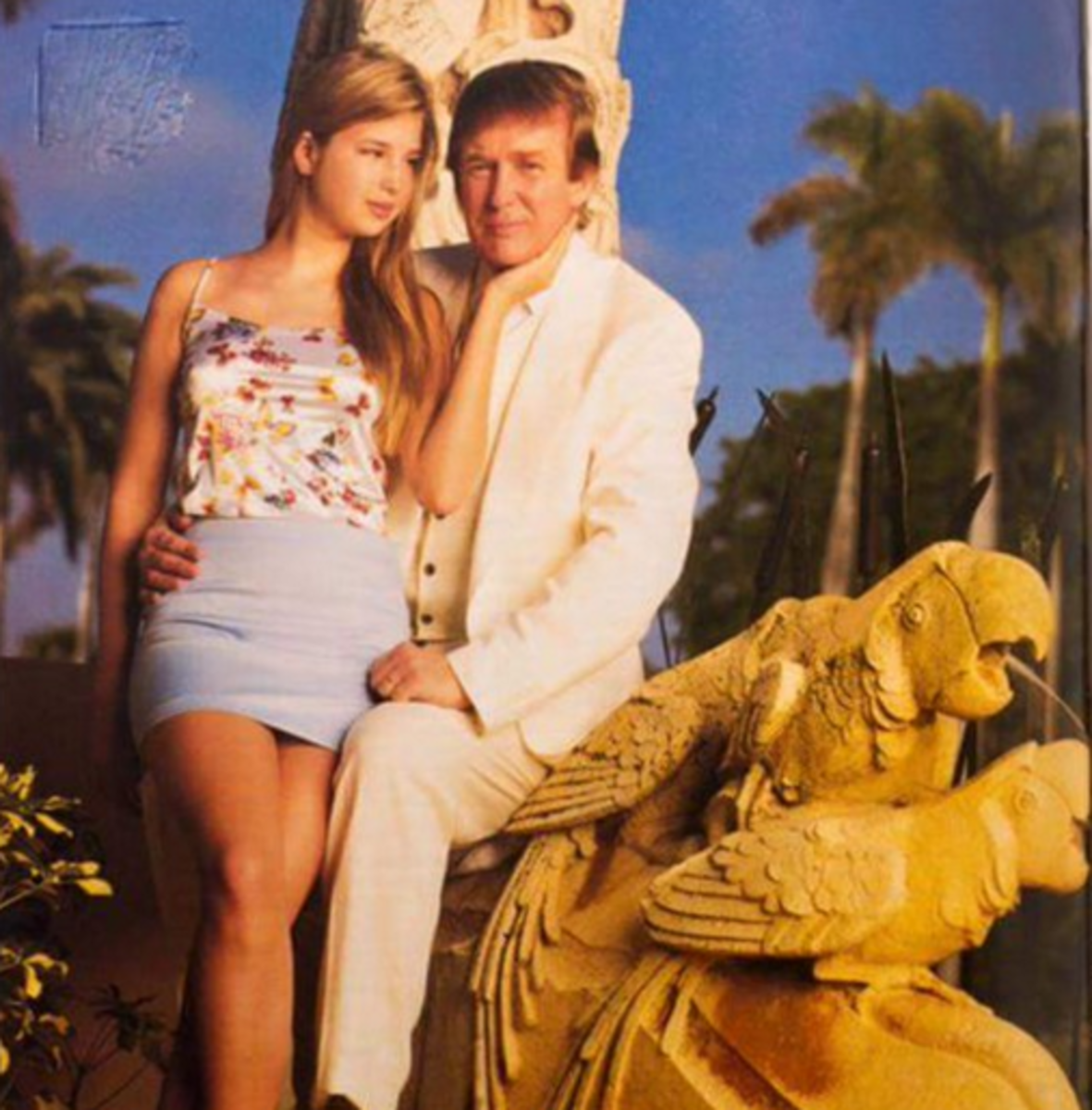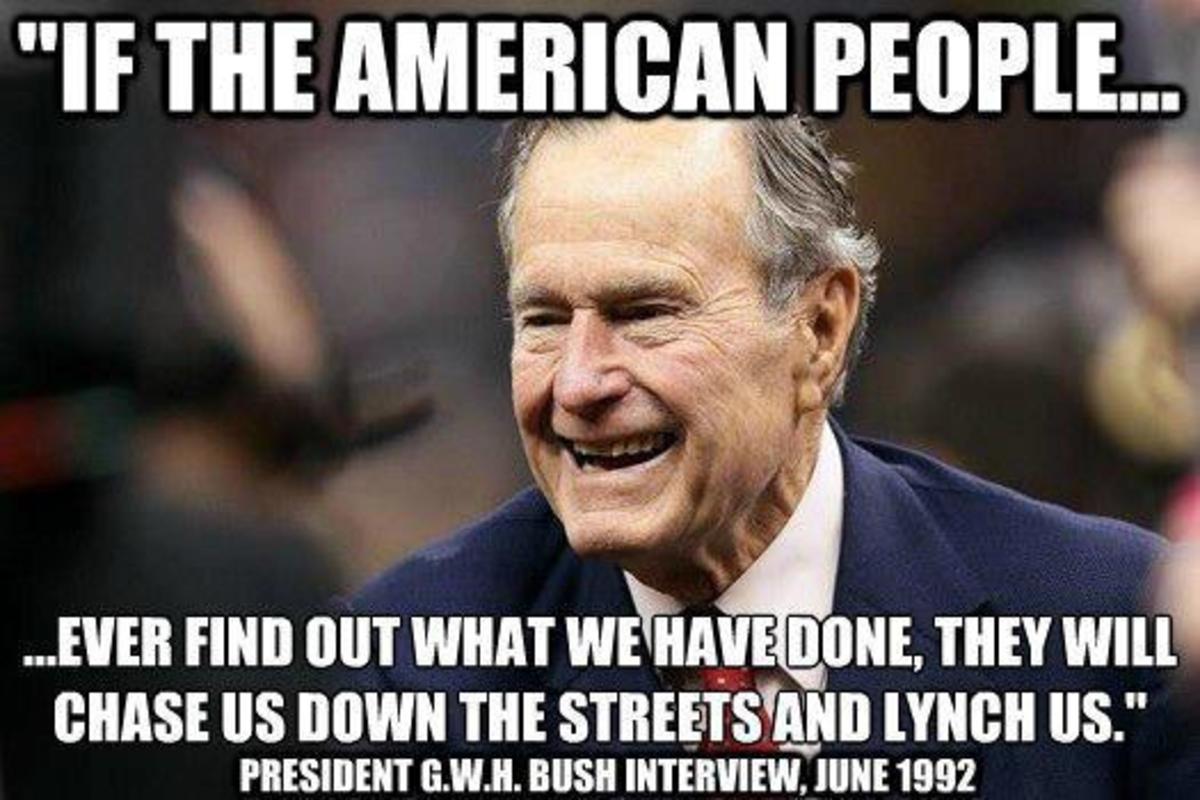The First Amendment to the Constitution: The Right to Free Speech and Freedom of Religion
The First Amendment
Congress shall make no law respecting an establishment of religion, or prohibiting the free exercise thereof; or abridging the freedom of speech, or of the press; or the right of the people peaceably to assemble, and to petition the Government for a redress of grievances.
For Every Right, An Equal Responsibility
The Founders of the United States of America had in their mind the notion that for every right there was an equal responsibility. At times this belief is stated outright in our founding documents, at other times it is implied, and still others it is so obvious as to be implicit. For a modern day example we drive down the road and see a sign that reads simply "Speed Limit 55mph." There are no educative clauses or parenthetical explanations as to what that directive means even though we could ask many questions as to its meaning.
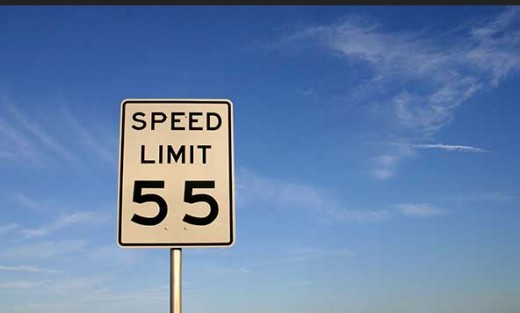
The state places the speed limit signs making certain assumptions about you, and me, regarding our personal ability to make appropriate judgements. It assumes that we will know the proper application of the law, that it doesn't literally apply in cases of blizzards or rain storms. So it was with the Founders in regard to our application of, not only the first amendment, but indeed the first 10 amendments of our Constitution also known as The Bill of Rights. This fundamental trust in our reasoning capacities has always been challenged from generation to generation. Today that trust seems, not only challenged, but sometimes utterly misplaced. The clear wording of the first amendment has been twisted and inverted to the point of meaning the opposite of what the Founders intended it to mean. These words should not mean what I would like them to mean nor what I wish they did not mean. They should be understood soley upon the intent of its drafters. I would like to examine the statement itself and then offer some historical perspective.
Congress Shall Make No Law Respecting An Establishmet Of Religion...
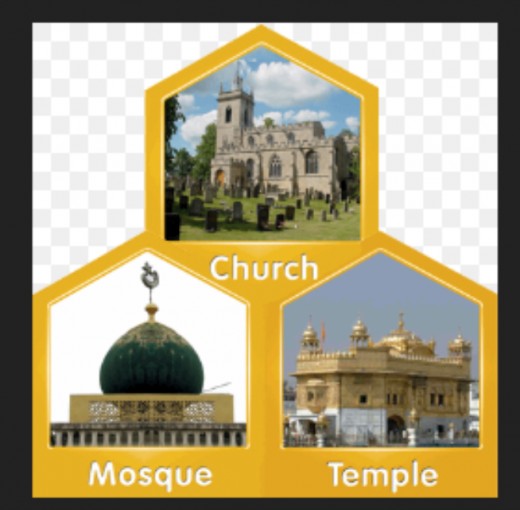
The Establishment Clause/Free Exercise Thereof
"Congress shall make no law respecting an establishment of religion, or prohibiting the free exercise thereof..."
The second part of the text (prohibiting the free exercise thereof) is crucial for without it the meaning of the whole is lost. Note the word "respecting" in the first section. It is not used in the sense of giving honor as we think of the word respect today, like the way we should respect our parents or a police officer, etc. It meant "in regard to." So then "in regard to the establishment (or creation of) a religion" Congress can make no law, in regard to a religion that is, neither to create a new one or abolish an existing one. Congress "shall make no law respecting an establishment of religion," in other words, Congress is to leave religion alone. It is not to interfere with religion as it is practiced from state to state within the nation. It is not to compel citizens to worship, nor is it to forbid citizens from worshipping, the latter is wrongly applied in our era routinely as we see this first amendment misapplied in such instances as forcing the removal of the 10 commandments from our schools and our state and national monuments because it "offends" someone. The Constitution does not protect the citizenry from being offended. In fact, quite to the contrary, what we as citizens ought to find offensive is our governments attempts to stifle and suppress what this first amendment guarantees, namely the "free exercise of" our religious convictions. It would at the very least disappoint the Founders to think that a prayer before a sporting event, asking God to protect all participants, would be deemed "unconstitutional." This was not their intent. This type of suppression goes precisely against what they were trying to protect because it is a violation of our freedom of speech. If the school wishes to allow a prayer to be said over the PA system the school is not in violation of the Constitution unless they compel everyone in the stands to join in. So long as religion is not compulsory it is to be tolerated just as a religious peoples are expected to tolerate atheists.
Intolerance of religious expression and practice is not new to our country. What was traditionally more prevalent was animosity between practicing religious entities e.g. Catholics and Protestants. Prior to the 20th century religious freedoms were not argued between atheists and believers, but rather between opposing sects and denominations. (This assertion will be expanded upon in our next article discussing the origins and meaning of the second amendment.)
To demonstrate our country's long history of soul searching, compromise, and tolerance regarding the free exercise and practice of religion, I would like to quote a section Rhode Island's charter secured by colonists in 1663 from Charles the 2nd that endured until 1842, before and long after the Founders penned the amendments. It was, in fact, a charter the Founders used as a precedent for the Bill of Rights.
"No person within the said colony, at any time hereafter, shall be any wise molested, punished, disquieted, or called in question, for any difference in opinion in matters of religion so long as he does not actually disturb the civil peace of our said colony."
— Rhode Island Royal Charter of 1663Now, people of faith are "quieted" because their freedom of expression is suppressed. Now, the people are "molested" because images of faith are forcibly removed from public buildings against the will of the public that fund those buildings. These are instances of expression and free speech, not forcible participation in an establishment of religion. When I drive down the expressway I may be offended at billboards I see, but I have the freedom to look away just as whoever erected the billboard has the freedom to put it up. The Founders believed that if tolerance and freedom prevailed the details would work themselves out. They further believed that the hallmark of freedom was to be left alone by the government and to be able to live your life however you choose so long as you do "not disturb the civil peace." Having a nativity scene or a posting of the 10 commandments at a county courthouse does not violate the first amendment. While such displays may offend some, they please others and in neither case do they "disturb the civil peace." In fact, such displays are protected by the First Amendment.
Again, the Founders believed that citizens of a free society must possess the right to free speech, but that right carries the implicit expectation that the citizen will use that right with judicious concern, and respect for the truth. Are those the qualities we see in our citizenry today, our media, and most of our politicians?
The natural progression of any argument in a free society is to eventually arrive at a place of frustration so acute that one person shouts at the other, "Shut up!." The first amendment cuts through the passion of both sides of an argument and reminds us that neither can be forced into silence.
Freedom Of Speech
"...Or Abridging The Freedom Of Speech, Or Of The Press..."
Ironically, no entity seems to be more out of touch with this section of the First Amendment than the press. Once, not too long ago, I wrote a letter to the editor of the local newspaper. This action is of some importance to me as I routinely wrote editorials regarding political and social issues. On this particular occasion my article was edited or "abridged" in such a way that it made me appear to be upholding the opposite side of an issue I was actually opposing. Friends who read the article in the paper were baffled having known my position. I called the paper, spoke with the editor and read the section of my letter that had been omitted by his paper. He apologized, but did nothing to correct the error. The press, more specifically the media at the national level, have recently been accused of promoting "fake news." I'm sure you've all heard the term. What is of interest to me is the way the media defends itself, not by refuting the accusation with facts, but by saying that the US president is suppressing their right to a free press and free speech just because he frequently uses the term "fake news" in reference to their particular agency. However, this is not accurate. What the President is doing is disagreeing with certain venues of the media and certain media outlets. For example, calling CNN "fake news" is not suppressing CNN from reporting any news, fake or otherwise. It is the President fighting back, from his perspective, not forbidding the media from exercising its right to free speech. Again, ironically, it seems more like the media has a problem with the President exercising his right to free speech.
Burning Of The Reichstag
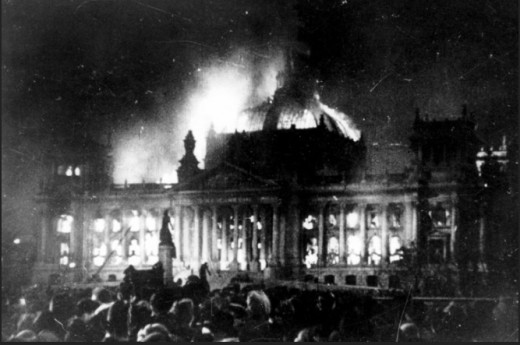
"...Or The Right Of The People Peaceably To Assemble, And To Petition The Government For A Redress Of Grievances.
In March of 1933 The President Paul von Hindenburg signed the Reichstag Fire Decree and The Enabling Act. These measures were taken in response to the Reichstag (Germany's equivalent of our Capital building" being burned to the ground. They effectively dissolved all political parties in Germany and gave the party of the newly elected chancellor, Adolph Hitler, a lone presence in the nation. No longer could you legally belong to the Catholic Center Party, or the Communist Party or any of the 20 plus other parties in Germany at the time. All were disbanded. These acts were a dubious harbinger of what was to come and a seal on the likelihood that it was indeed Hitler himself and his Nazi's that set the building ablaze.
With the stroke of a pen the right to peaceful assembly and the right to redress grievances with the government was dissolved. This is how fragile a democracy can be. The ideas contained in the American Bill of Rights is not archaic, outdated, or the ramblings of drunken slave owners as revisionists might have us believe. Rather, it was the culmination of historical precedents brought into alignment by some of the most talented minds ever assembled in one place at one time. The genius of the Founders was not so much their ability to call principles of freedom out of thin air, but to draw from their deep, collective knowledge of governments throughout history. There was a movement during the 1770's and 1780's to move the country in the direction of ancient Roman law, indeed we still have many semblances of Roman antiquity with us today i.e. trial by jury, the Senate itself, not to mention the Roman collonades after which our capital city was modeled. However, what was intolerable regarding Roman law as far as the Founders were concerned was its insistence that government was above the law. In order to preserve a lasting freedom the rule of law must prevail, not the rule of monarchy that had brought so much misery to the world. The ruler, be it prime minister, chancellor, president et al, would forever more be under the law so far as the United States was concerned. And so George Washington would say upon hearing that his countrymen wanted to establish a monarchy with himself as the head,
"Never have I been more saddened than at the hearing that my countrymen would establish in me, that from which they have gained their freedom."
A tyrant cannot allow assemblies of people to gather together because he fears they may overthrow him, that that might be the purpose of their gathering, the construing of such plans. In a free society the ruler has no need for such worry because he knows his power and rule are limited. Only a tyrant would want otherwise. Our political structure, the Bill of Rights being the foundation, is constructed as a deterrent to tyrants by securing rights for the people against that which is the natural course of government- the expansion of its power and influence.
Please watch for my next article; a follow up to this one, a discussion on the meaning and history of the second amendment. "A well regulated militia, being necessary to the security of a free state, the right of the people to keep and bear arms, shall not be infringed.

